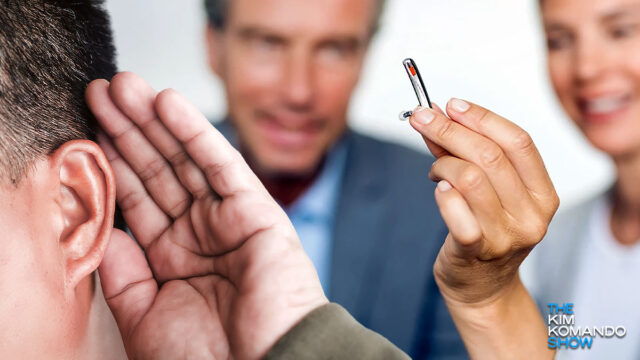What your brain has to do with hearing loss

Last year, my husband Barry lost hearing in one ear because of a virus. Suddenly, we were having issues communicating. I could tell it was impacting Barry so much more than that, though.
The science behind hearing loss
When your hearing fades, your brain scrambles to fill the gaps, like reading a book with missing pages. All that extra effort drains your focus, memory, and energy. No wonder untreated hearing loss leaves people exhausted after conversations.
Hearing loss doesn’t just strain your brain, it raises your risk of dementia. Each year, 800,000 Americans develop dementia because of it. The good news? Treating hearing loss with hearing aids can cut that risk by 50% in just three years. Amazing, right?
Key signs you could benefit from a hearing aid
Over 30 million Americans need hearing aids but don’t use them. If that’s you, it’s not just about missing sounds. It’s a serious dementia risk.
Hearing loss creeps up. You may not notice until it’s bad.
🔹 Struggling with speech in noisy places
🔹 Asking people to repeat themselves
🔹 Cranking up the TV
🔹 Background noise feels overwhelming
Today’s hearing aids don’t just amplify sound, they are loaded with tech to clarify speech and cut background noise, taking a huge load off your brain.
I went looking for the best
Now, Apple’s AirPods can work if your hearing loss is mild to moderate. For anything more severe, you need tech built for the job. I looked into a lot of brands and found hear.com. They deliver double the speech clarity of the closest competitor. That impressed me.
Their Horizon IX hearing aids pack two state-of-the-art computer chips for dual-processing. They process speech and background noise independently, then recombine them for the clearest possible sound, even in busy, loud places.
The Horizon IX’s lithium-ion batteries are rechargeable, and they’re practically invisible and comfortable, even if you wear glasses. You can see a doctor near you or virtually. If you’re not happy, get a full refund.
✅ Hit this link to see if you qualify for a 45-day no-risk trial now, while you’re thinking about it.
Tags: hard of hearing, hear.com, hearing, hearing aid
